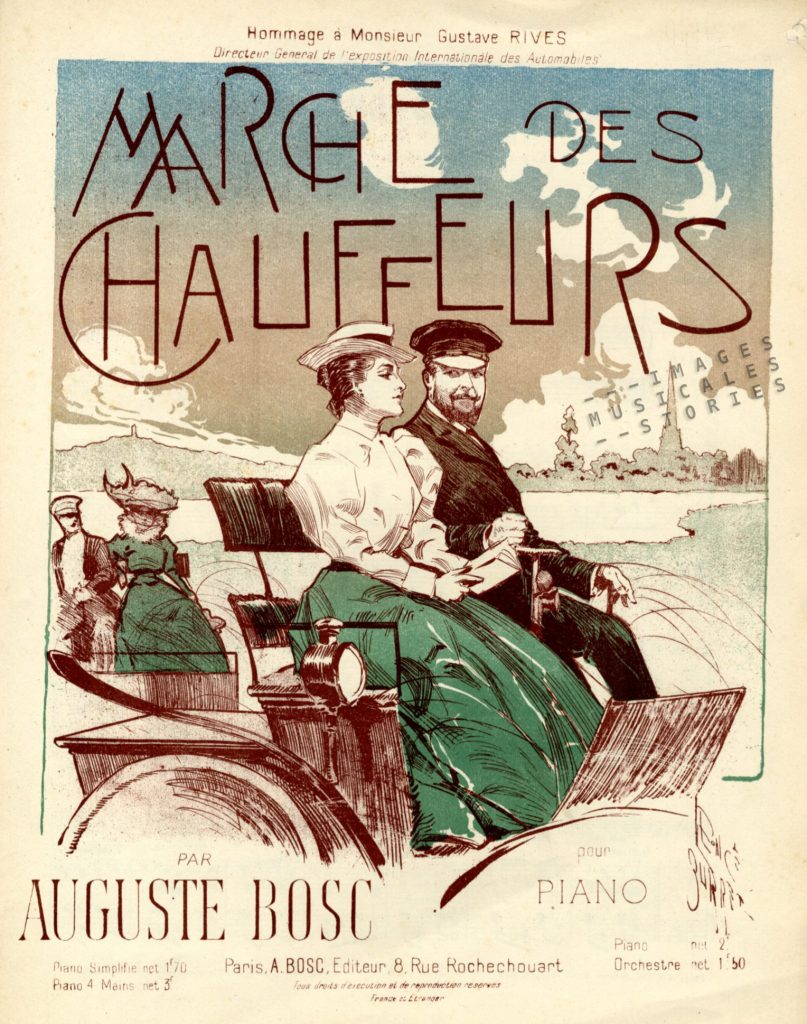
Isn’t it ironic? Composing a march to celebrate another form of locomotion, really! The lady reading a book in her automobile has no intention at all to set foot on the ground, let alone to walk. Her chauffeur seems to question her attitude. Thank you Léonce Burret for this quizzical image.
A marche that wasn’t composed to accompany a brisk walk or hike. We found this same kind of contradiction for ‘marches‘ that praise cycling,…
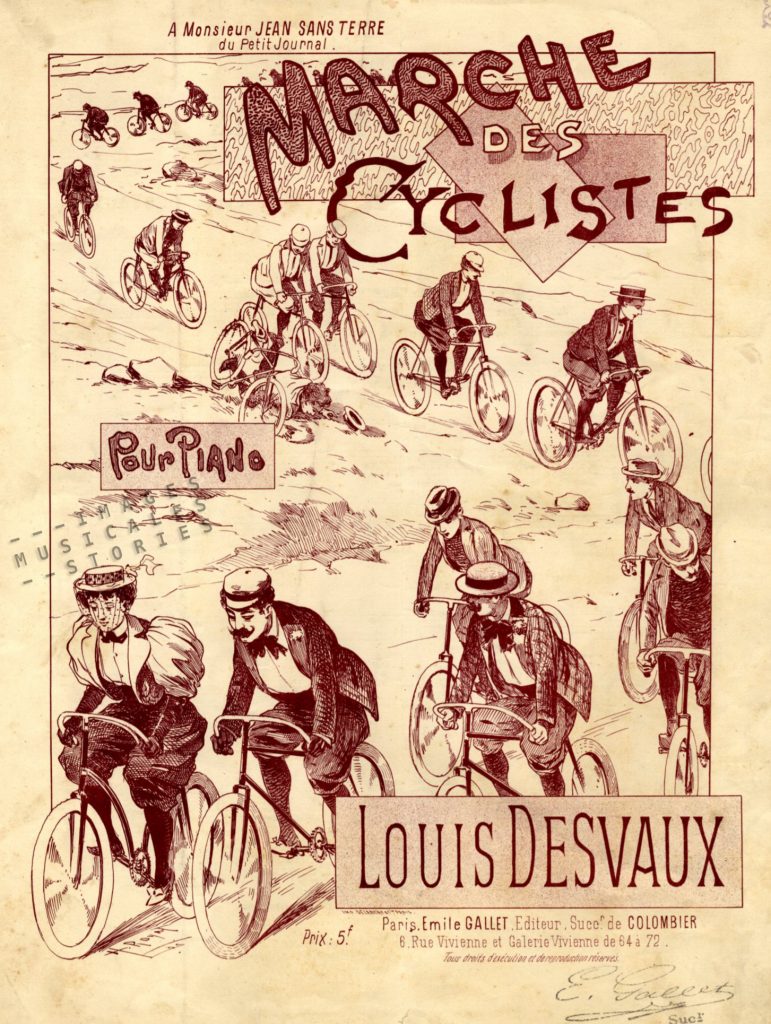
salute ballooning,…
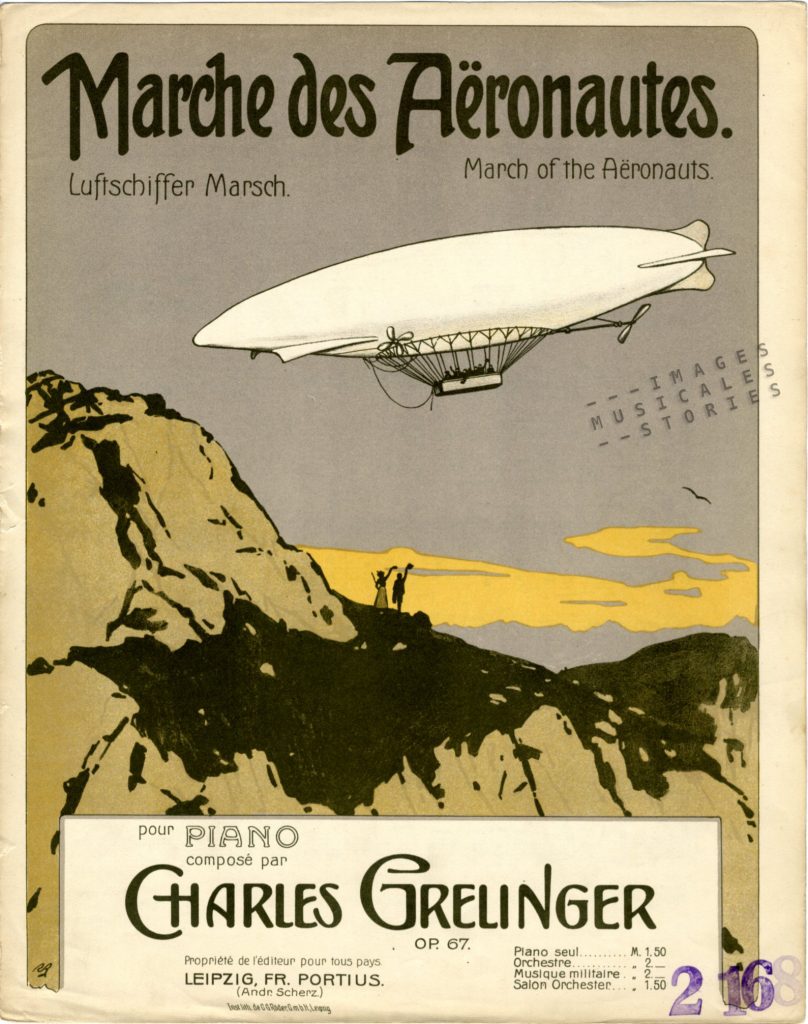
or cheer the enjoyment of gliding on ice…
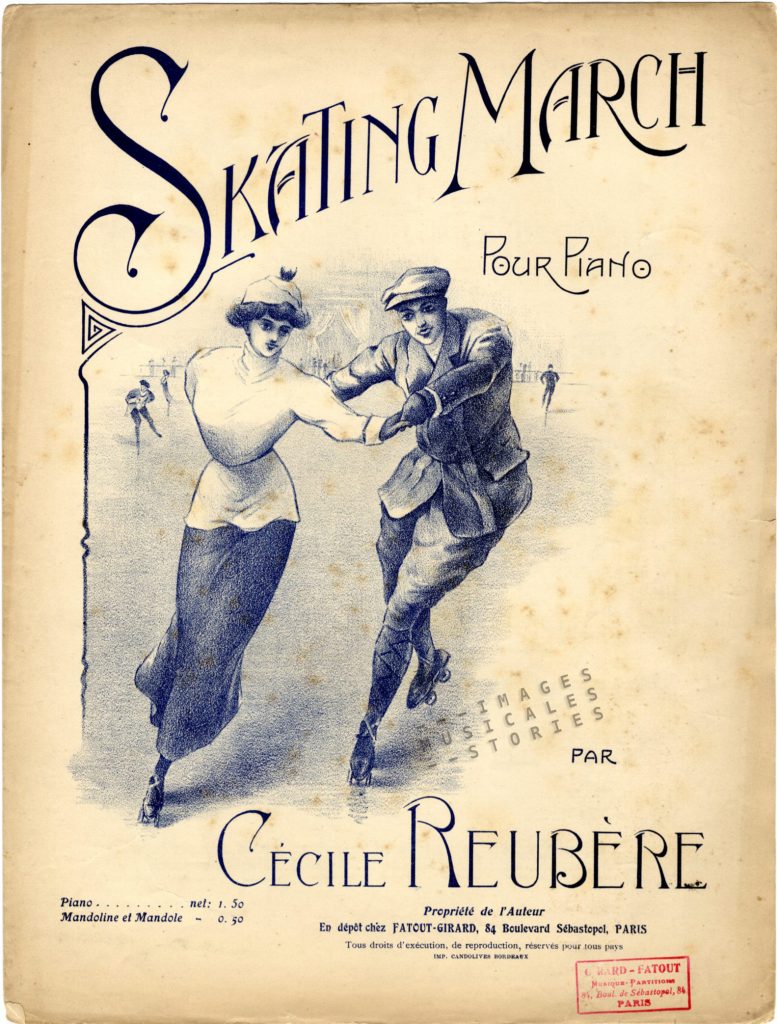
or over snow.
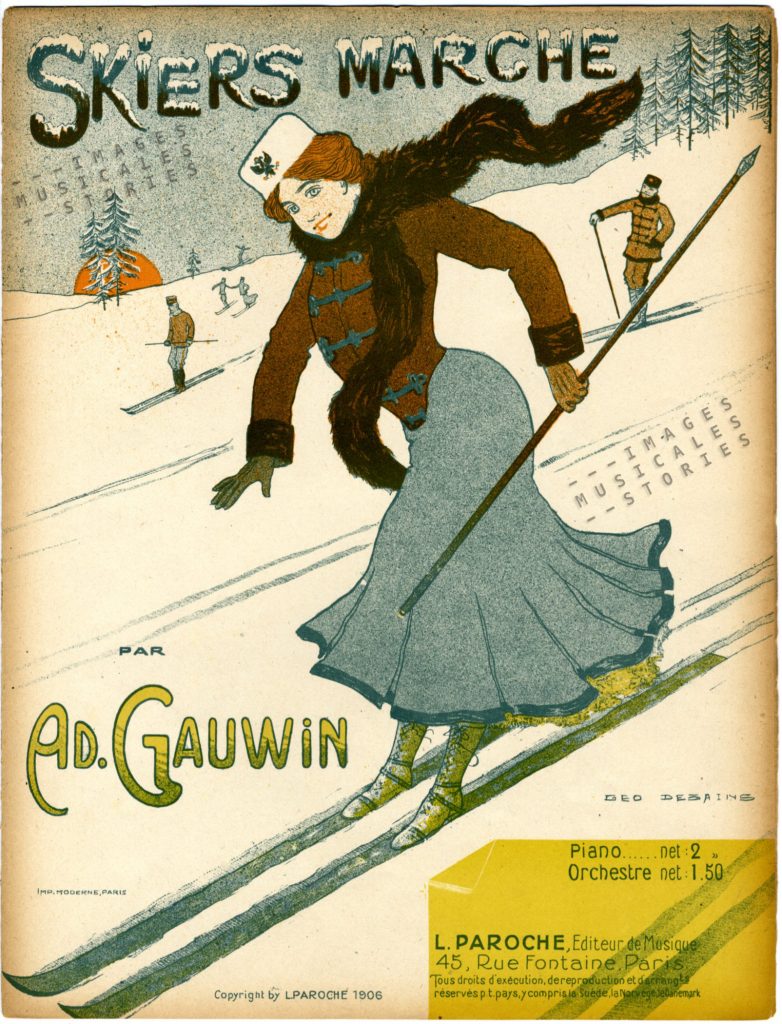
We recognise a good old-fashioned march when we hear or see one. Something that encourages a fast pace in a military spirit, and that goes a long way, on foot of course! Here it is, the Marche du Matin strongly illustrated by Lucien Faure-Dujarric.
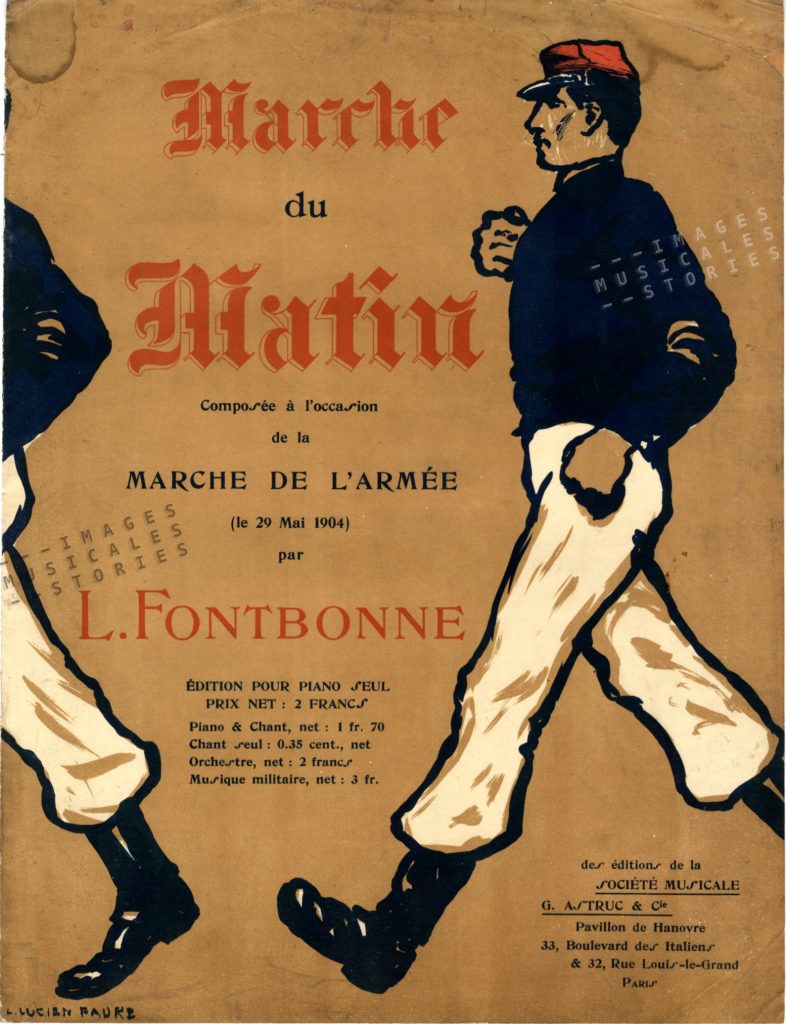
I mistakenly assumed that the Marche du Matin was composed to hearten the soldiers during their daily early morning exercise. No, the title of the march refers to Le Matin, one of the four big French newspapers before WWI.
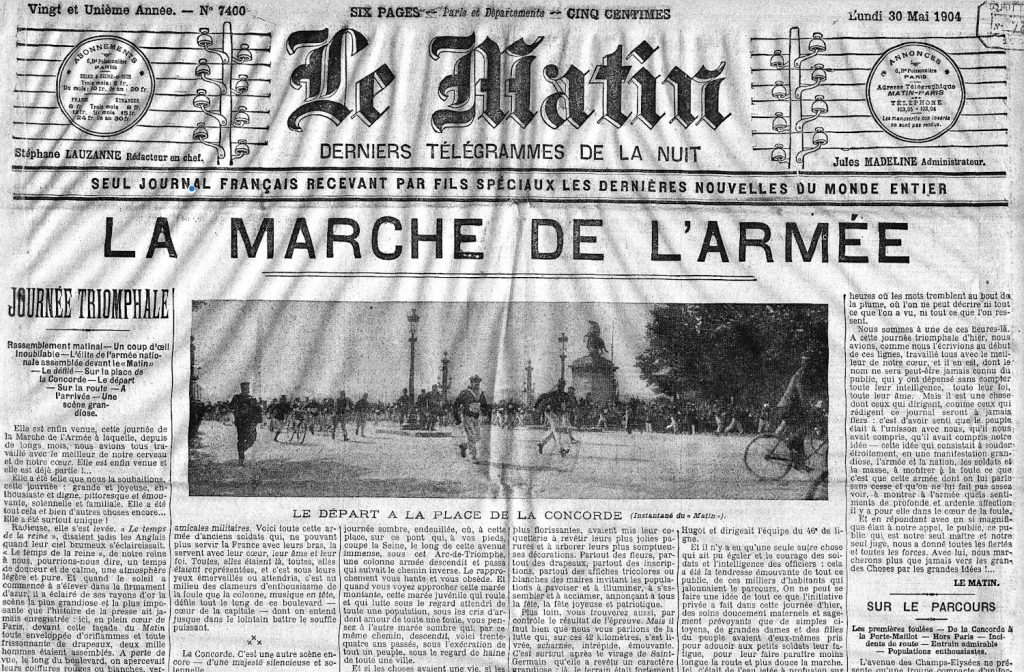
On the 29th of May in 1904 Le Matin organised a promotional stunt: with the encouragement of the Minister of War and the cooperation of the Army top, each French regiment selected 10 of its men to participate in the big Marche de l’Armée. The walking contest started at the Place de la Concorde at 7 am, with the playing of a military march. Then the 2000 men in battle dress and heavy boots assembled in two long columns and charged up the Champs-Elysées to commence the 45 km (!) long itinerary that would bring them through Paris as far as St-Germain-en-Laye and back. Large crowds, cheers and flags accompanied the men.
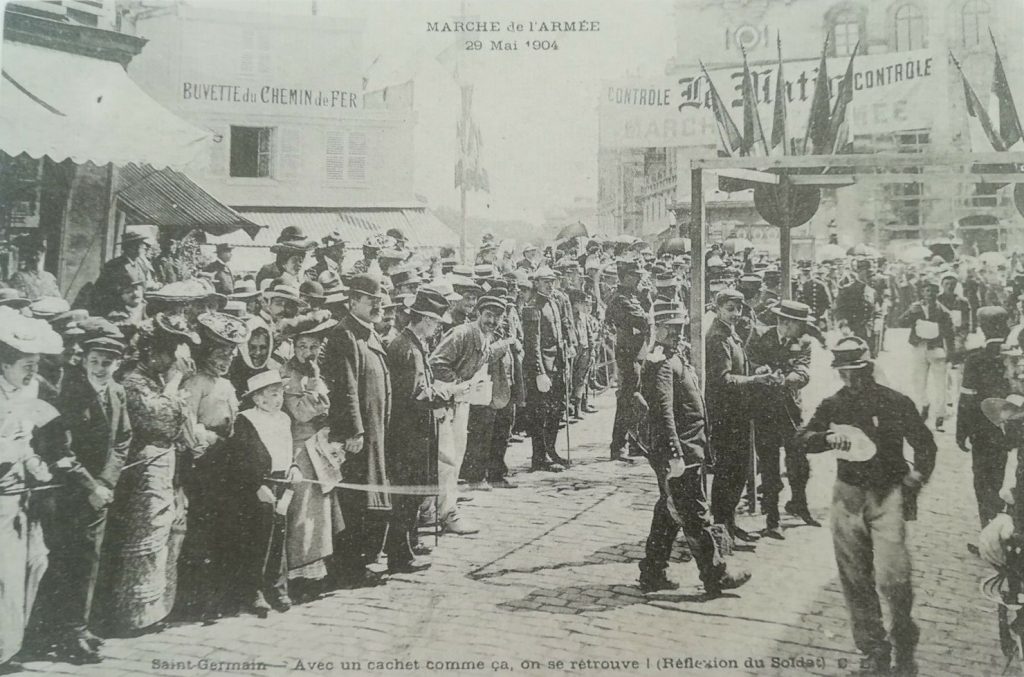
France’s Bibliothèque nationale is a real treasure trove. After some digging we were lucky to find interesting pictures of this arduous march by the photographic agency Rol.
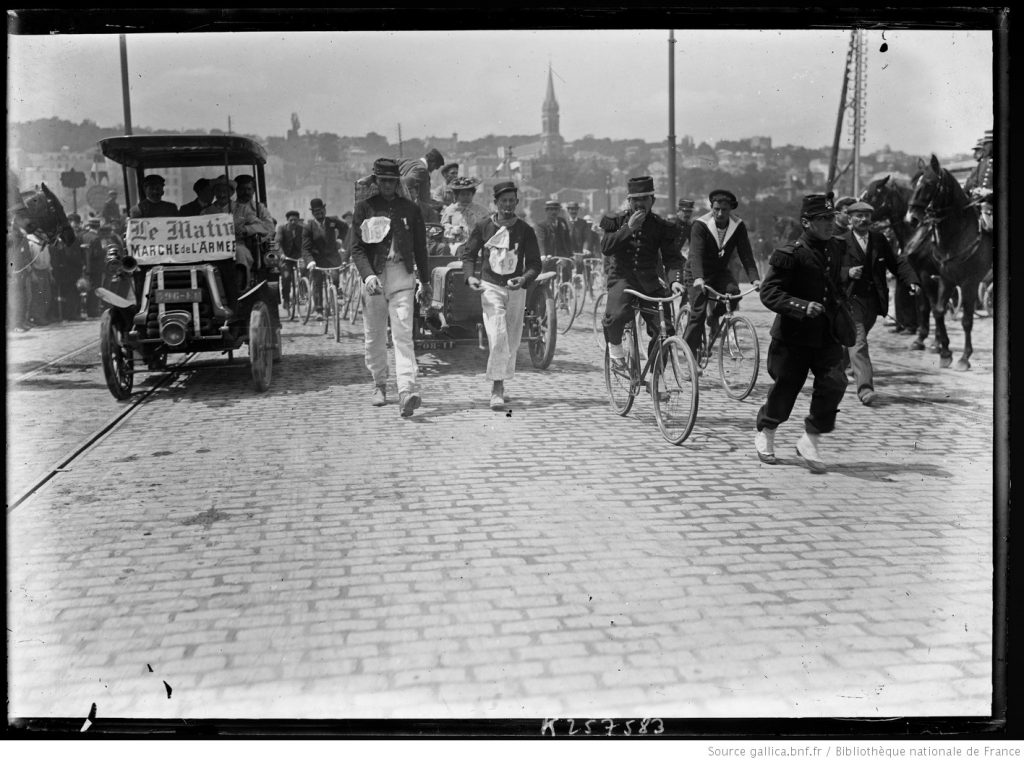
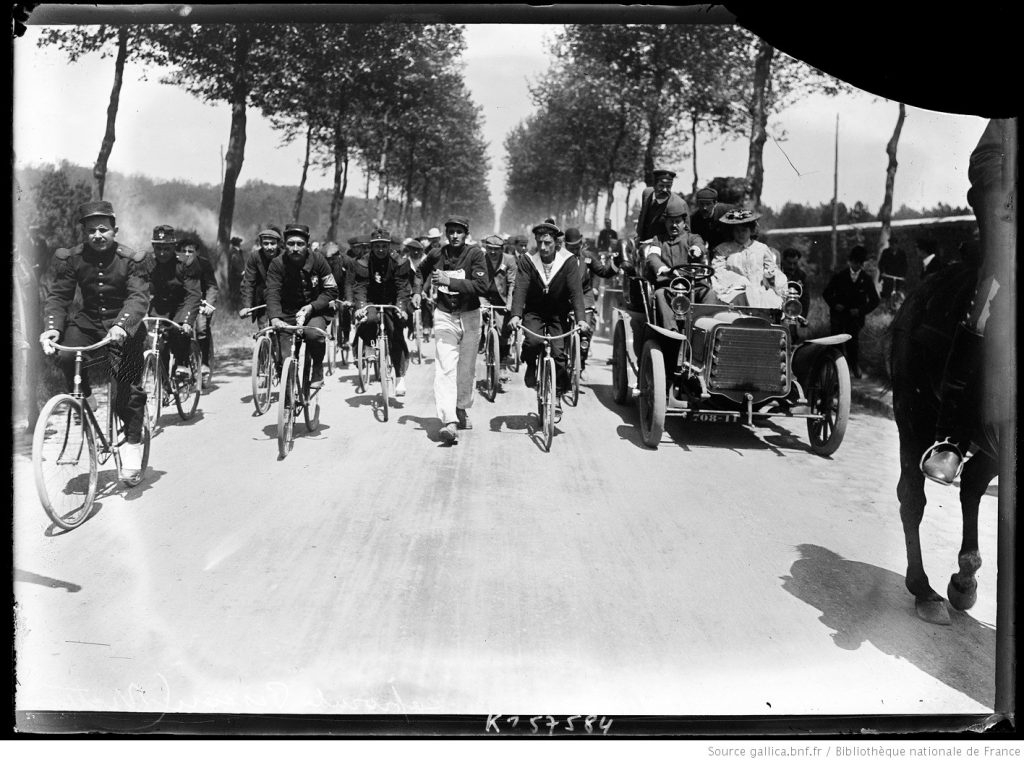
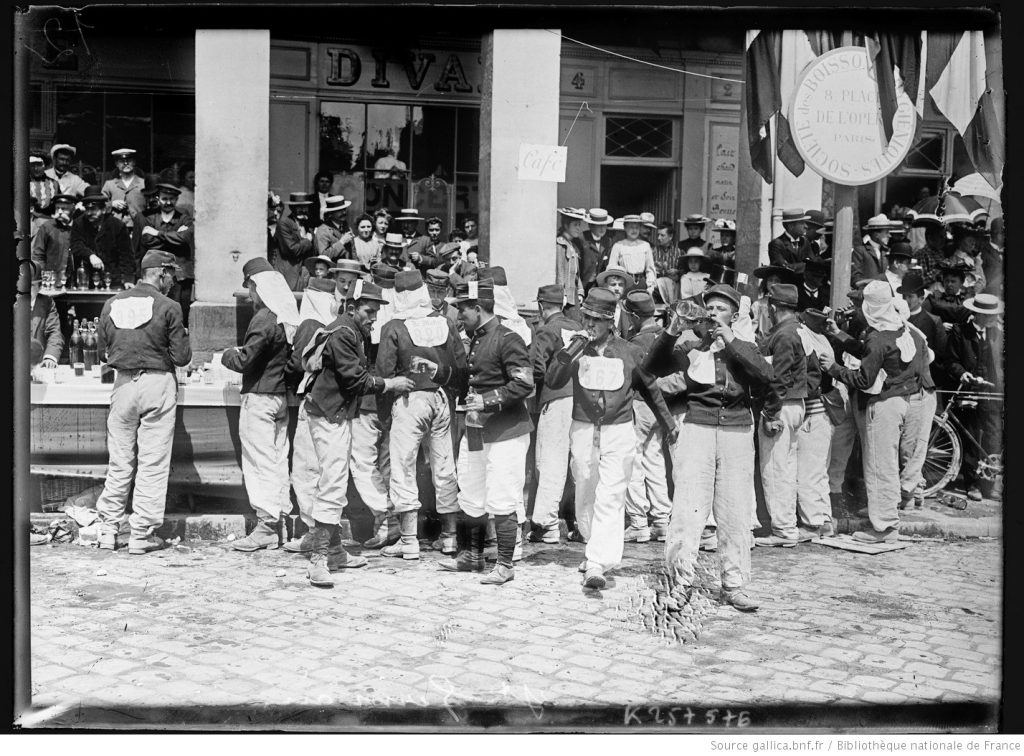
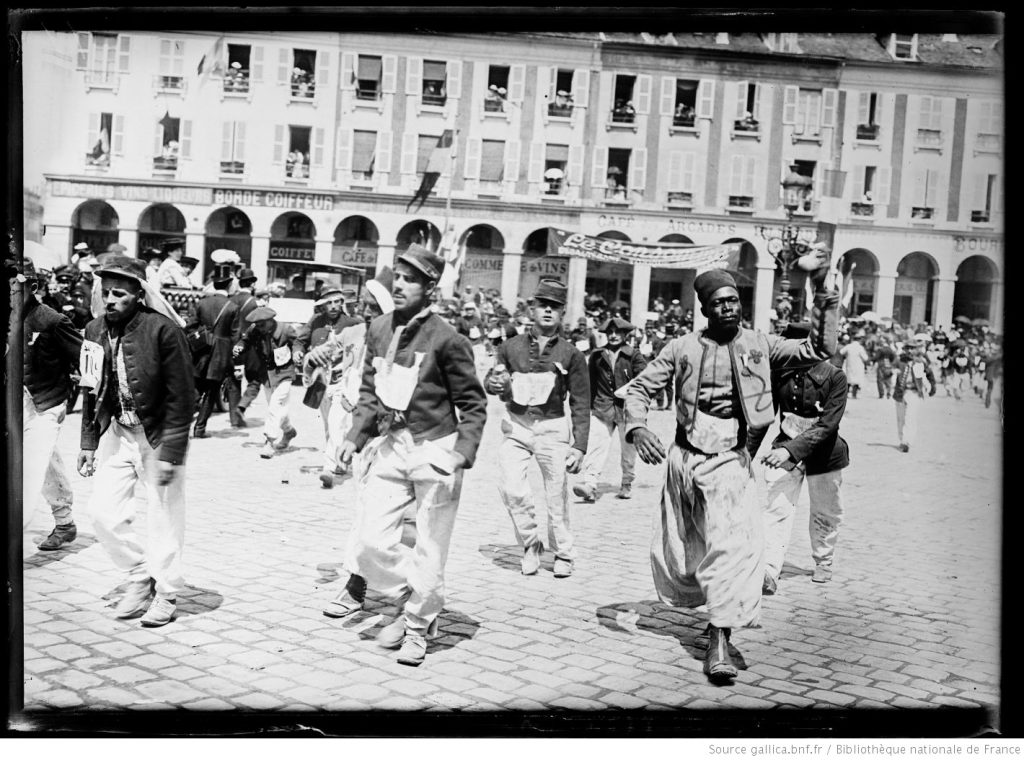
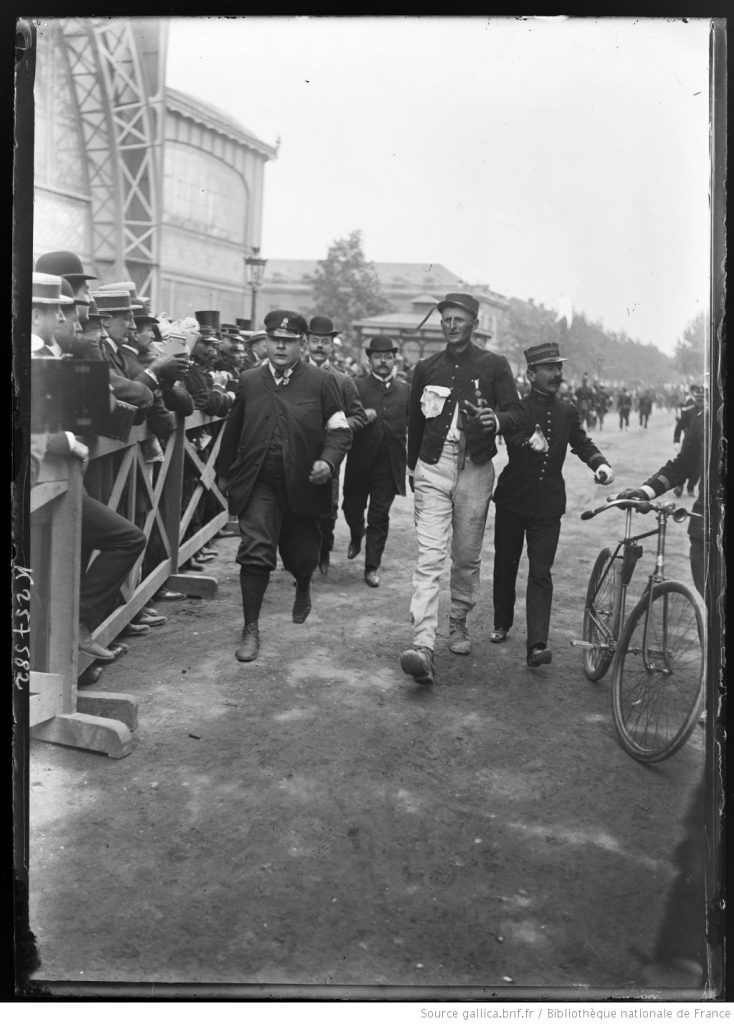
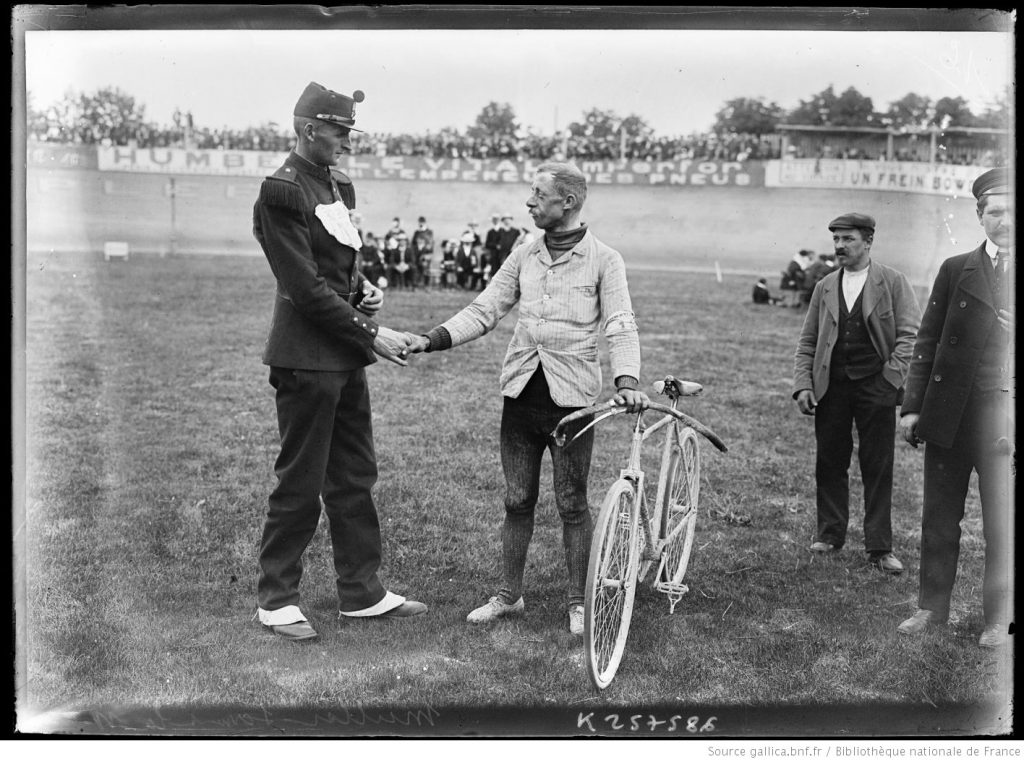
I won’t recount the whole day, nor the numerous incidents and accidents. After more than 5 hours the first contestant arrived at the finish. That day the weather was abnormally hot, and the men suffered. Many abandoned the march. Some soldiers were taken to hospital, at least one died. What should have been a festive day became a painful spectacle. The next day L’Humanité, the communist newspaper would report: “The sight of Gerard, the winner, had made the crowd cry out in pity. The unhappy boy could not even, at the end, lift his painful feet swollen with fatigue. The sight of the last groups deeply moved the spectators. The sturdy lads, who had left so happily in the morning, returned broken with fatigue, devastated, drenched in sweat, haggard eyes, clenched hands, clenched jaws, stumbling at every step, threatening continually to fall on the pavement.
A small marine infantry soldier, seized by a dizzy spell, takes two steps back. An officer holds him and shakes him. Another one shouts at him: “Hold on, no more than 25 meters left!”. Hardly recovered, the poor child, he is not yet twenty, continues on his way staggering. A hundred meters from the checkpoint, he stops again and brings his clenched hands to his throat. But an officer motions him forward, giving him a word of encouragement. He stiffens then, and feeling his strength completely abandon him, he rushes in a last effort towards the finish post near which he comes crashing down.
And these sorrowful scenes went on and on …“
Hm… I think that white fatigue trousers will forever remind me of the deplorable scenes above.
